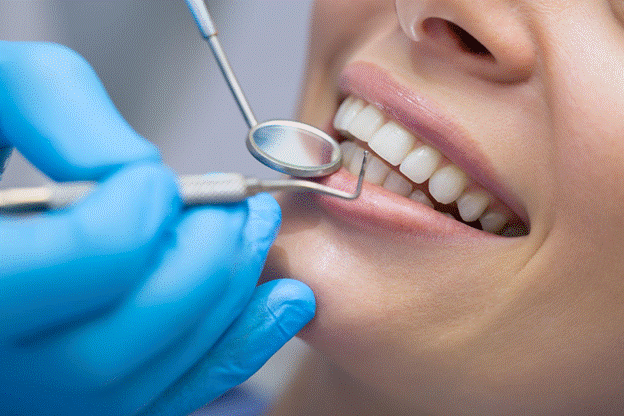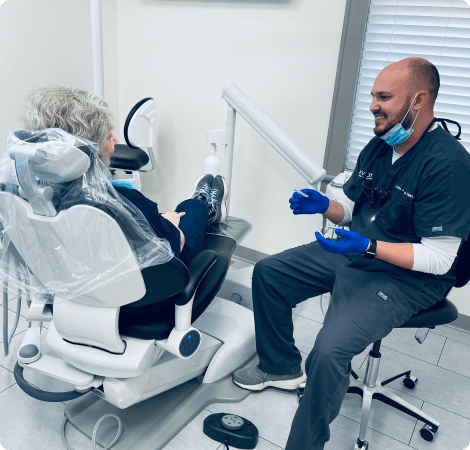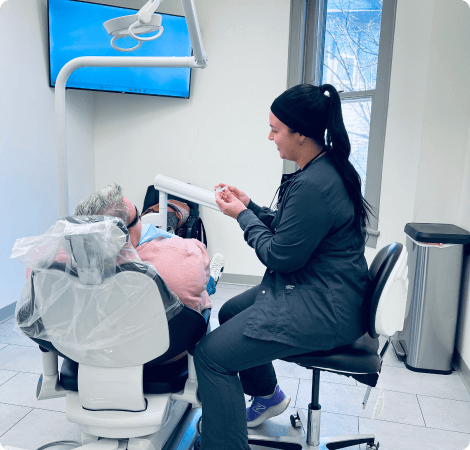Key Responsibilities of a Dentist

Research shows that a persons oral health directly correlates to a person’s overall health. Most people treat teeth as separate from the rest of the body, but, in fact, the mouth is an entry point for harmful microbes deep into the body. Considering that many diseases don’t become visible until they have progressed significantly, dental problems are one viable way of discovering them.
As such, the role of dentists is more significant than most people give credit for. Think of your dentist as an early warning system, alerting patients when they find something worth consulting a physician or specialist. Yet, the latest numbers suggest that only three out of five Americans go to the dentist for a checkup or cleaning.
Hopefully, this blog post on the key responsibilities of a dentist in New Albany and other areas will convince you to take your oral health seriously. It might be a daunting experience for some, but nothing is scarier than getting a disease that could’ve been prevented with ease.
Oral Disease Treatment and Prevention
The first is the most obvious: dentists are responsible for treating a range of dental conditions that affect the oral cavity. Tooth decay (also called dental caries), cavities, and gum disease are a given, but other problems include tooth loss, infection, abnormal staining, and hypersensitivity.
Eating sweets without brushing your teeth afterwards is an all-too-familiar recipe for tooth decay, but that’s not the only way. For example, as heartburn can trigger vomiting of gastric juices, their high acidity can melt the protective enamel easily. Diseases that hinder saliva production, such as Sjogren’s disease, can also contribute to caries.
While dentists aren’t licensed to diagnose said diseases, they can let patients know about their risk and urge them to see a physician or specialist. Dealing with the root cause of dental problems is an effective—not to mention cost-saving—approach to treating and even preventing them from ever recurring.
Meanwhile, their treatment can prolong the health and longevity of your teeth. Regular dental prophylaxis or cleaning removes plaque and particles that routine brushing and flossing can’t remove or reach. If cavities have formed, dental filling can stop the infection from reaching the nerve of the tooth. As a last resort, the dentist or dental practitioner may elect to extract the irreversibly damaged tooth or recommend root canal therapy in an effort to save the tooth and prolong its use.
Delivering Adequate Oral Care
Believe it or not, a dentist swears under the Hippocratic Oath as much as a physician or specialist. For starters, the oath is a code of ethics urging dental practitioners to use the knowledge they gained to care for the ill properly.
While we can’t say if all dentists take the oath upon graduation, delivering adequate oral care is nonetheless one of their key responsibilities. This isn’t just about being equipped with state-of-the-art instruments and being trained in advanced dental practices and treatments. It also entails consent or guaranteeing a patient’s freedom to choose how they want to be treated.
Patient consent in dentistry works the same way as in other medical fields, compelled by a need for transparency. Informing patients of their options and the benefits and drawbacks of each assures them that their dental specialists or dental team have their best interests at heart and assists them in making more informed decisions.

As per American Dental Association guidelines, a dentist secures two kinds of consent. For legal purposes, the consent is always put in writing and ratified by the patient’s signature.
- General Consent – the dentist discusses possible treatments for the patient’s case and allows them to perform the preferred procedure and its necessary steps
- Informed Consent – follows general consent, proves that the dentist has discussed their patients’ treatment plans in depth and the latter has agreed to it despite the risks
Suppose the dentist can’t treat a patient due to limitations in the services or dental technology offered or any other valid reason. In that case, they should refer the patient to a dental specialist who’s better suited to satisfy their needs.
Patient Education
Everything we’ve discussed so far in this blog post relates to the third and last of a dentist’s key responsibilities—educating patients about the importance of dental care. Prevention will always be better than cure, and the best way to achieve this is for patients to be mindful of their oral hygiene practices, lifestyle decisions and their impact on teeth and gums.
Patient education has grown more necessary over the decades due to the proliferation of misinformation on social media and the rest of the internet. One study discovered that Facebook and Instagram hosted a lot of false claims, from using untested treatments to steering clear of fluoridation.
One recent example involves a Maternal and Developmental Risks from Environmental and Social Stressors (MADRES) study that suggested a link between pregnant women drinking fluoridated water with behavioral problems in children. For a time, news outlets ran stories about its findings.
However, in an official statement, the California Dental Association stressed that the study had major limitations, such as the small sample size of only 229 mother-child pairs. On top of that, a related study in Australia last year, which had ten times as many participants as the MADRES study, found no clear link.
Of course, no one can be asked to peruse a whitepaper or medical journal in its entirety. As such, dentists are responsible for staying up-to-date on discoveries in the dental field and passing that information to patients in an easy-to-digest manner. Remember, if you’re unsure of what you come across on the Internet, it’s always a good idea to ask an expert.
Wrapping Up
In summary, a dentist’s key responsibilities include treating various oral health problems and preventing them from recurring, delivering adequate oral health care, and educating patients on the dos and don’ts of keeping healthy teeth and gums. Dentists are always a preferable source of expertise and service to some random content online.
Yet, while dentists have their work cut out for them, patients also have an important role to play. They should use sound judgment for making decisions that favor good oral health outcomes and work with their preferred dentist to make them happen.






